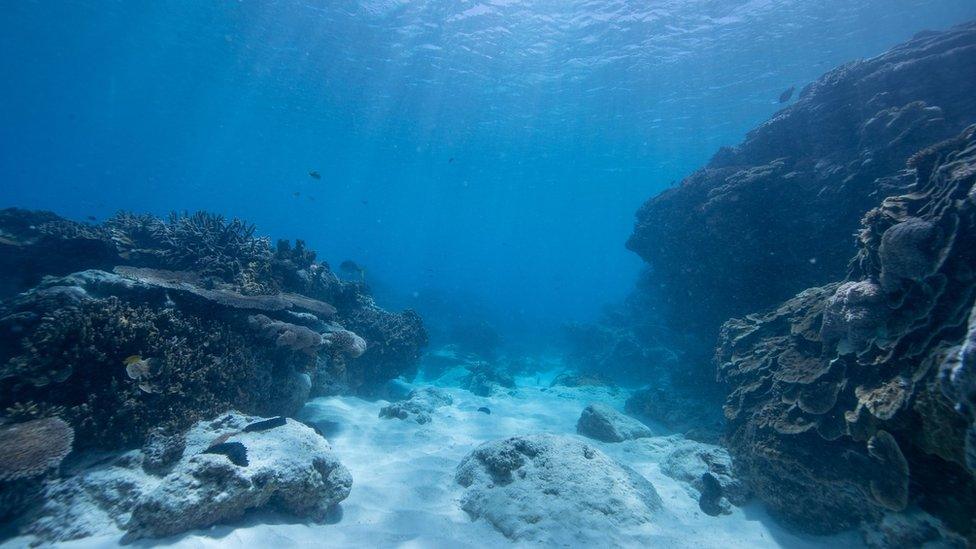Oceans have hit the highest ever recorded temperature
- Published
- comments

Our oceans absorb more than 90% of the heat trapped by greenhouse gases
The oceans have hit their hottest ever recorded temperature, and scientists say this is bad news for the health of our planet.
Oceans are extremely important in controlling the earth's temperature. They soak up heat, produce half of the earth's oxygen and drive weather patterns.
This week, the average daily global sea surface temperature reached 20.96C, far above average for this time of year.
The high temperature broke a record set back in 2016.
The oceans absorb 90% of the Earth's warming from greenhouse gas emissions.
Warmer waters have less ability to absorb carbon dioxide which is released from greenhouse gases.
This means more carbon dioxide will stay in the atmosphere, heating up our planet.
Not only that, warmer waters can increase that rate that glaciers melt and flow into the ocean, which will mean more rising sea levels.
Animals and marine life are also heavily affected too.
Warmer oceans have also been linked to more floods, storms, wildfires and droughts.
Hotter oceans mean marine life like fish and whales move in search of cooler waters, which upsets the food chain.
Some predatory animals, for example sharks, can become more aggressive as the hotter temperatures cause them to get confused.
Corals have also been affected. Dr Kathryn Lesneski, who is monitoring a marine heatwave in the Gulf of Mexico said "Right now there is widespread at shallow reefs in Florida and many corals have already died."
But why are the oceans getting hotter?
Scientists investigating why the oceans are so hot right now say that climate change is partly to blame, as the sea absorbs heat.
Over the last few years air temperatures have increased but the oceans take longer to heat up - so this increase could be showing us that the ocean is catching up.
El Niño and La Niña are caused when sea temperatures rise in the Eastern Pacific
One theory is that a heat has been stored in the ocean's depths and is now coming to the surface, which could be linked to El Niño.
El Niño happens when water in the Eastern Pacific heats up more than normal, and creates unusually hot and stormy weather conditions.
In turn this makes the weather around the world warmer on average.
Sea temperatures right now have broken the record set back in 2016 when a El Niño was at its strongest.
Another El Niño has started but scientists say it is still weak - meaning ocean temperatures are expected to rise even more.
This leaves researchers nervous about how much more the oceans could heat up in the coming months.
- Published17 January 2023
- Published9 April 2020
